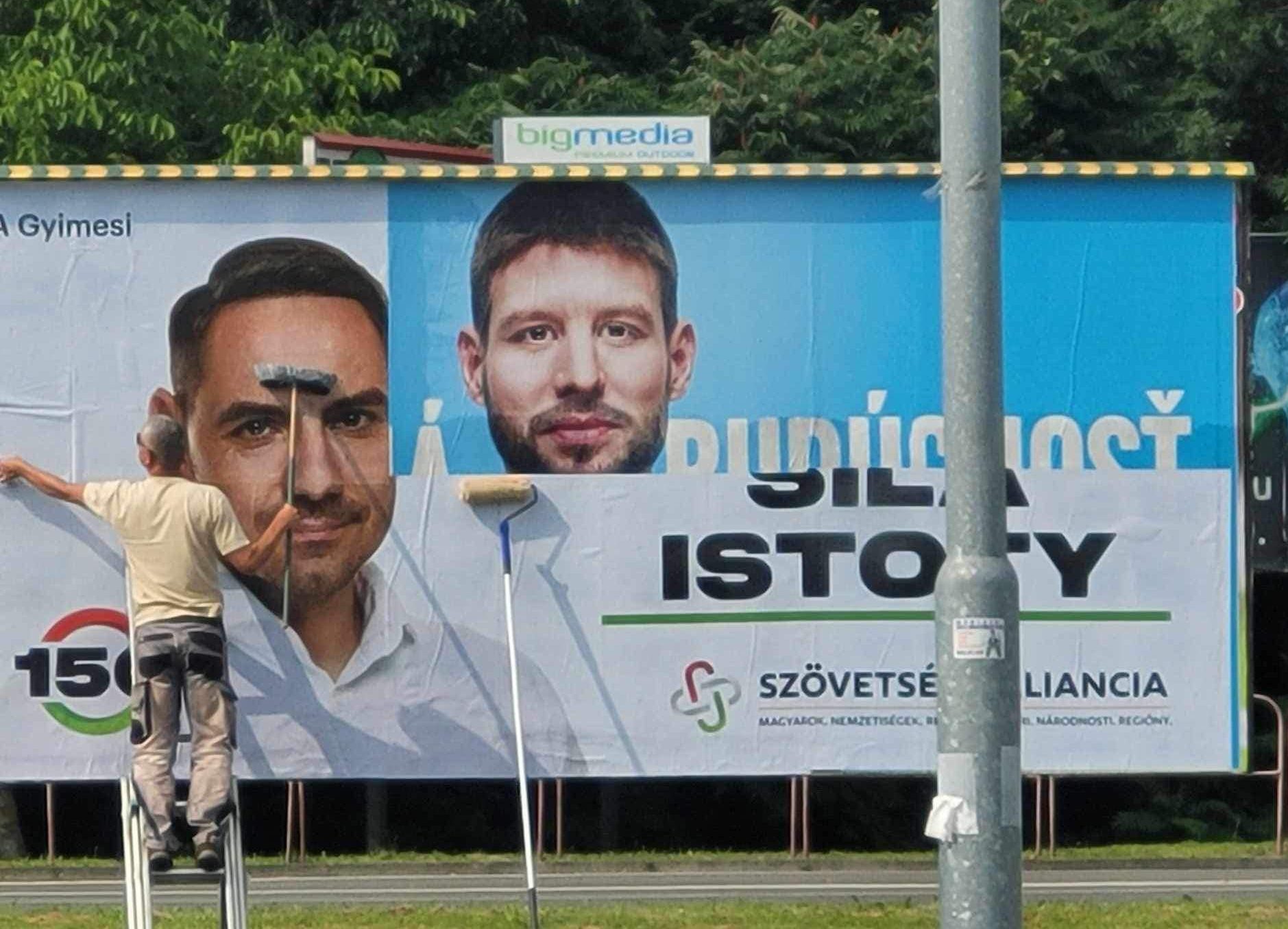
Alliance (Szövetség) politician György Gyimesi had spoken to us about the sudden influx of illegal migrants in Slovakia.Continue reading
In Slovakia, one of the most prominent politicians of the Hungarian minority’s party, the Alliance (Szövetség), has published a Facebook post expressing his support towards a recently announced political embargo on left-wing progressive media in the country. György Gyimesi has expressed his support for newly elected Prime Minister Robert Fico, who has pledged not to communicate with selected Slovak media outlets during his coming term, ones that he accuses of serving the interests of the global left, and lying about national conservative political forces.

The Hungarian Foreign Minister Péter Szijjártó (L) with newly elected Slovak Prime Minister Robert Fico. Photo: Facebook/Szijjártó Péter
“The progressive press has tasted the medicine it has prescribed for others,” wrote Gyimesi in his post. “The red media, such as DenníkN, Aktuality, or the (George) Soros SME, under previous governments, often carried out politics and disgusting propaganda instead of informing the public and commenting on events. They were lucky that there were just enough MPs and ministers who, with trembling knees and a deep bow, played politics according to what was written in the media,” claimed the Hungarian politician.
For these media, this served their own self-importance, their own superiority. They scapegoated politicians, vulgarly imposing a single, exclusive opinion. They stigmatized their ideological opponents, trying to undermine them in every possible way,”
wrote Gyimesi.
“Until they got their knuckles rapped,” the Slovak politician continued his post. “Their former favorite politicians were either defeated in the September elections or pushed out of politics completely. After the elections, the alternative media became more powerful, and today they wonder why no one in the new government even wants to talk to them. They are on the sidelines with their fake news, they have become uninvited guests in the Government Office, their questions are no longer answered, their interview requests go unanswered. In essence, they are where they should have been a long time ago. All that is left for them is the familiar progressive-liberal whine,” Gyimesi concluded.
In a later social media post he also criticized the previous government’s policies towards Ukraine. “There was that talk about how to quickly and completely cut ourselves off from Russian oil and gas!” President Zuzana Caputová, Prime Minister Eduard Heger, and with them the entire progressive “elite” said that this would bring Russia to its knees economically and it would not be able to wage war any longer.
The politician continued by saying that “these activists, for they cannot be called responsible politicians, have even achieved the fact that cheap Russian gas is being imported to Slovakia in minimal quantities and Slovnaft’s exemption to sell products made from Russian oil to the Czech Republic is coming to an end at the beginning of December.”
And how do other EU countries feel about the sanctions? Spain and Belgium are the second and third largest importers of Russian LNG gas in the world. They have imported more than EUR 5 billion of it.
Germany, Italy, and the Netherlands continue to be the largest buyers of Russian energy carriers with a value of EUR 63 billion. Incidentally, the EU has paid EUR 550 billion to Russia since the invasion began.
“Only we in Slovakia are about to have our entire economy and the wallets of ordinary people wiped out for a pat on the back,” wrote the politician. This is the result (as the media has been telling us) of pro-Atlantic, pro-European, pro-solidarity – add the adjective at will – submissive, activist, stupid, progressive politics,” Gyimesi concluded.
It is difficult to see where Prime Minister Robert Fico’s pledge will take him and the Slovak media landscape in general. However, it increasingly seems to be the case that investment in Central European news outlets by well-known political activist oligarchs, such as US businessman George Soros, or the Czech left-wing billionaire Zdenek Bakala, did not bring about any positive change in people’s trust in the media (in Slovakia it firmly stands at some 27%), nor did it translate into electoral victory for political forces that they all so openly supported. In Slovakia, for instance, despite overwhelmingly positive press in the mainstream media, over 60% of respondents believe that liberal President Zuzana Caputová serves foreign interests.
Featured Image: Facebook György Gyimesi